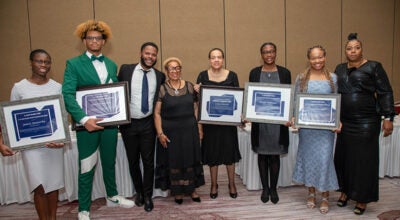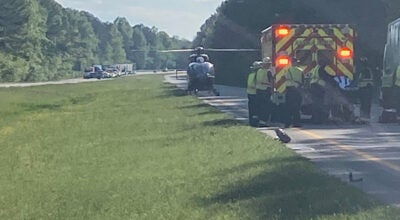Fighting tumors in North Suffolk
Published 10:36 pm Friday, January 11, 2019
New treatments at Bon Secours Cancer Institute at Harbour View are offering advanced technology with more convenience for patients.
Bon Secours announced in December that the institute’s radiation therapy department would now offer stereotactic radiosurgery, or SRS, and stereotactic body radiotherapy, also known as SBRT. It’s the latest form of focused radiation therapy at the institute.
Radiation therapy is one of the most common treatments for many forms of cancer, as well as the safest and most effective. This therapy damages the DNA within cancer cells and inhibits its ability to reproduce.
This new radiotherapy is able to deliver precise, high-dose radiation to destroy tumors inside a patient, while minimizing radiation exposure for the surrounding, healthy tissue. The procedure’s collimated beams allow for precise targeting and minimal spread, according to Dr. Bradley Prestidge, the regional medical director for radiation oncology at the Bon Secours Cancer Institute.
“Standard radiation can be done to treat a small tumor, but often times it gets a lot of radiation dosed to normal tissue surrounding the target,” Bradley said. “This allows us to be much more precise in the delivery of the radiation dose.”
However, he emphasized that this treatment is not fit for all different cancers. It’s meant for relatively smaller tumors in areas of the body that are difficult to reach surgically, such as the brain and lungs.
“It really needs to be in the right kind of location and the right size of tumor to be amenable to this treatment,” he said.
One such case was Joseph Resurrection in December. Doctors discovered a tumor in the 69-year-old Portsmouth resident’s lungs last year, after he was treated for his colon cancer.
“I went to another PET scan, and then they found the spot on my lung,” Resurrection said.
Resurrection’s tumor was treated in Harbour View, both closer to where he lived and in a relatively shorter time frame.
While conventional radiation therapy may take multiple visits over several weeks, the advanced technologies of SRS and SBRT are typically performed in one to five sessions, depending on the type of tumor in question.
Resurrection was treated in just four therapy sessions, done every other day and finished in mid-December. His tumor shrank until Prestidge was satisfied that the therapy had done the trick.
He will follow up with more tests and scans, but as of now, Resurrection’s outlook is fantastic. He was also impressed by the convenience of the procedure itself.
“When I arrived at Prestidge’s office every other day, I was out in less than an hour,” he said, with very little side effects from the radiation.
He sang high praises of Prestidge and his staff, as well.
“They were really helpful,” he said. “I was very pleased, and I think very highly of Dr. Prestidge.”
The doctor is determined to spread the word that this new technology is available in North Suffolk, where Bon Secours can treat patients locally, instead of having them travel far and wide for what they need.
“It’s a treatment that’s becoming more and more state-of-the-art with modern cancer centers,” he said, adding that before this was typically done at academic center facilities, like the Duke Cancer Center in Durham, N.C. “The important message that we want to get across to the community is that we have the same.”






